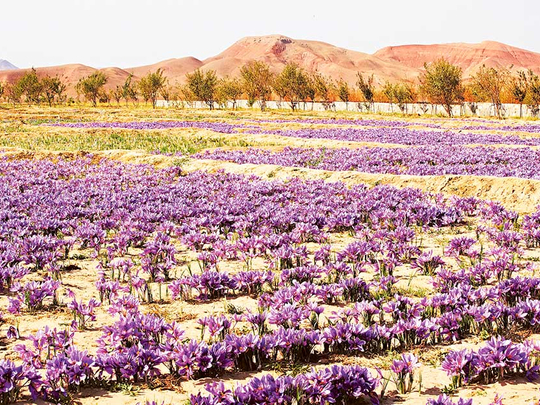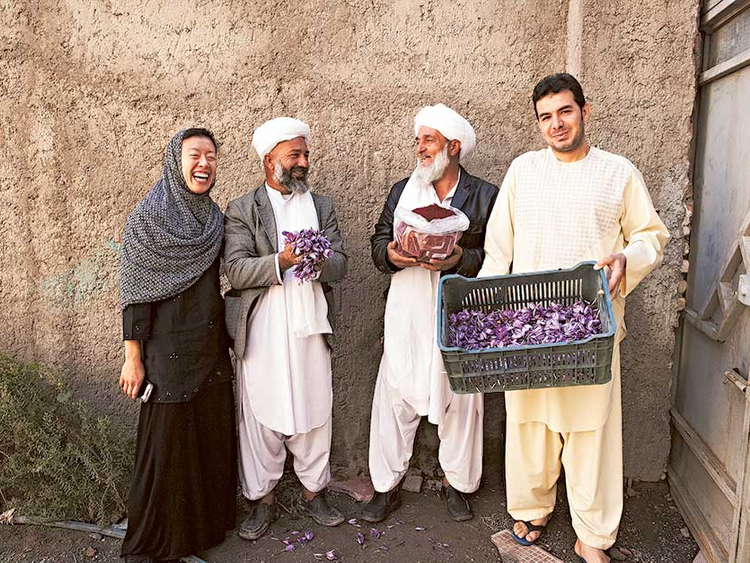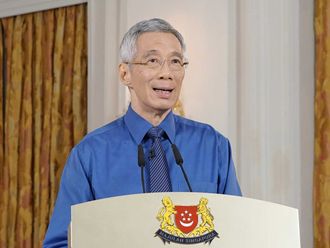
Kabul
Bomb-blasted roads, frequent blackouts, shortages of basic equipment and an untested consumer market are hardly conditions that make for natural entrepreneurial opportunities.
But three Army veterans and one civilian who all served in Afghanistan have taken on those challenges in their new venture. Their company, Rumi Spice, buys saffron from Afghan farmers and sells it to international customers.
Their business is part of a small crop of efforts to help develop Afghanistan’s resource economy.
“We wanted to create something to empower everyday Afghans long after we left,” said Kimberly Jung, one of Rumi Spice’s founders, who said the company’s name was inspired by the 13th-century Persian poet.
Started two years ago, Rumi Spice now sells saffron that is used by chefs in renowned restaurants like French Laundry in California and Daniel in New York. It appeared on the shelves and website of the luxury food seller Dean & DeLuca this month.
Saffron is one of the most expensive spices in the world, costing $2,500 (Dh9,182) to $30,000 a kilogram. A staple in Indian, Moroccan and Persian cuisine, it is also a crucial ingredient in European dishes like Spanish paella and French bouillabaisse.
As Americans search out the latest artisanal trends, Afghan saffron is starting to make inroads.
“As overall aid money to Afghanistan has decreased, a new mindset of entrepreneurship has taken hold,” said Ahmad Fahim Didar, the director of the new Afghan chapter of Startup Grind, a global startup community that works with Google for Entrepreneurs.
The Rumi Spice founders decided to focus on farmers because 80 per cent of the Afghan population works in agriculture, according to the US Embassy in Kabul.
Saffron is expensive because it is difficult to grow and painstaking to harvest. Each amethyst-coloured saffron crocus produces just three stigmas. The stigmas are separated by hand from the blossom and then dried into rusty-red threads.
About 150 flowers are needed to produce a single gram of saffron. Afghan saffron has a reputation for being particularly flavourful — in part because of the terrain and harsh climate around Herat, where it is grown.
In 2014, Keith Alaniz, an Army engineer officer who worked with regional governments in Afghanistan, approached his friend Jung, whom he had met while working for the Army Corps of Engineers after Hurricane Sandy in New York, about the idea of marketing Afghan saffron.
Jung had been an Army engineer officer who searched for roadside bombs in Afghanistan. She was then at Harvard Business School with Emily Miller, also a former Army engineer officer, who had assisted special operations on night raids.
The company’s fourth founder, Carol Wang, had worked in Afghanistan on a World Bank-backed rural development programme.
One of the arguments for bringing saffron to an international market is that it could give Afghan farmers an alternative to growing opium poppies, a source of heroin.
The farmers were sceptical at first, Jung said, because they had seen “people come and go with many promises.”
But Miller said, “Once they started seeing we could really sell the product, the farmers started knocking on our doors.”
Rumi Spice worked with 34 farmers in 2015. The company plans to work with more than 80 farmers for this year’s harvest in October and November.
Processing plant
The next step was to open a processing plant. In April 2015, Rumi Spice began a Kickstarter campaign and raised nearly $33,000 in less than two months.
The processing plant, based in Herat, employed 75 Afghan women in 2015. The company paid their wages directly to them rather than following the more common Afghan practice of paying the male head of the household. About 300 to 400 women will be hired for the 2016 harvest.
In 2016, Rumi Spice is on track to reach its projected revenue of $500,000 for the year. The founders say that it became profitable three months ago.
Abdul Shakoor Ehrarri, an agricultural specialist, manages the saffron processing plant.
In 2015, soon after Jung returned from a trip to Afghanistan, she took some saffron to New York chef Daniel Boulud, who has started 15 restaurants around the country.
“I was very pleased by the high quality and the purity of the pistils of Rumi Spice saffron, and the taste was exceptional as well,” said Boulud, who has been using their saffron in his signature restaurant, Daniel, for over six months.
More than the business aspect, Jung said that the connection to Afghan people has been the highlight of the venture.
She remembers a special moment during the saffron harvest last fall. At one point, the younger women working in the new processing plant, some of them teenagers, shyly asked Jung to play Beyonce’s song Irreplaceable on her phone.
They shut the door, held an impromptu dance party — and then returned to the time-consuming task of separating the fiery red stigmas from the purple saffron blossoms.
Quoting an Afghan saying, Jung said, “Drop by drop a river is made.”
— New York Times News Service













